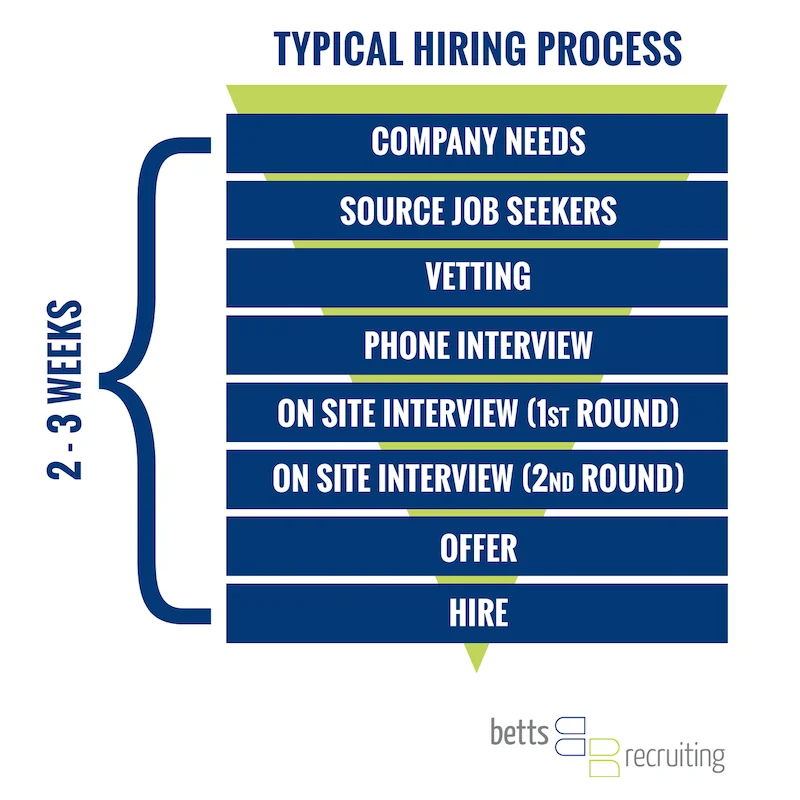Hiring a new employee can be a daunting task, especially if you and your company don’t already have processes in place. It’s important to know the best practices before you begin, as they will help you to find skilled candidates and determine who will be the best fit for your company.
In addition to the characteristics above, there are a few other key characteristics to consider when evaluating talented professionals for your positions. Here are some important questions to ask:
- Did the candidate do his or her homework? Did they take the time to learn about your company and the nuances of your particular business?
- Did they follow the directions for applying? (This may seem silly, but attention to detail is important.)
- Do they present themselves well? Do they seem comfortable speaking over the phone, sending a well-composed email or leaving a professional voicemail?
- Did they actively listen and respond thoughtfully during the interview process?
- Did they put their best foot forward? (Remember – you only have one chance to make a first impression, and that impression will also be made on your clientele.)
To assist new hiring managers who have not developed their own hiring process, we’ve outlined, what we’ve seen to be the typical sales hiring process below.
(For detailed explanations of each step, please scroll to the bottom.)
Best Practices for the Hiring Process
Company Needs: Specify what it is that you’re looking for in this position. It is essential to be as specific and honest as possible when defining a role and what you’re looking for.
Source Job Seekers: During this step you will be searching for as many qualified people as possible, which will increase your chances of finding the perfect candidate.
Vetting: Having a recruiter will make this step of the process exponentially easier. This step serves to determine which candidates should continue on in the hiring process. Phone interviews are sometimes included.
Phone Interview: This step provides a helpful way to get to know the candidates. Speaking over the phone helps to answer questions about culture fit and work-life balance, which will save time during later interviews.
On Site Interview (1st Round): Typically held with the hiring manager, this interview is meant to establish if the candidate is able to accomplish the job and whether they will fit in with the culture or not.
On Site Interview (2nd Round): This is when the candidate will meet their potential future team, and possibly the hiring manager’s boss.
Offer: The offer letter is an important step. Since candidates are likely interviewing at other companies, you definitely want to send an official offer letter. If you forget this step, you may lose out on an awesome candidate.
Hire: If and when the candidate accepts your job offer, you’ll want them to begin within the next month.
You can find more information like this in our Sales Team Accelerator Tool Kit, which you can download here!
If you’re interested in hiring top talent, click here to reach out to one of our hiring experts!
